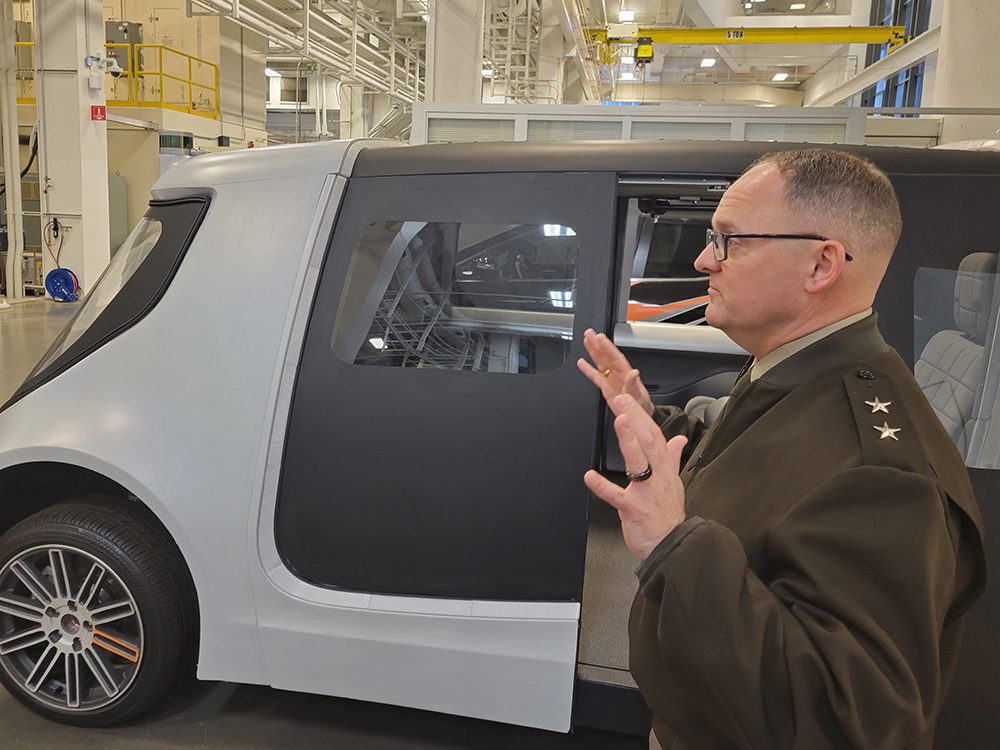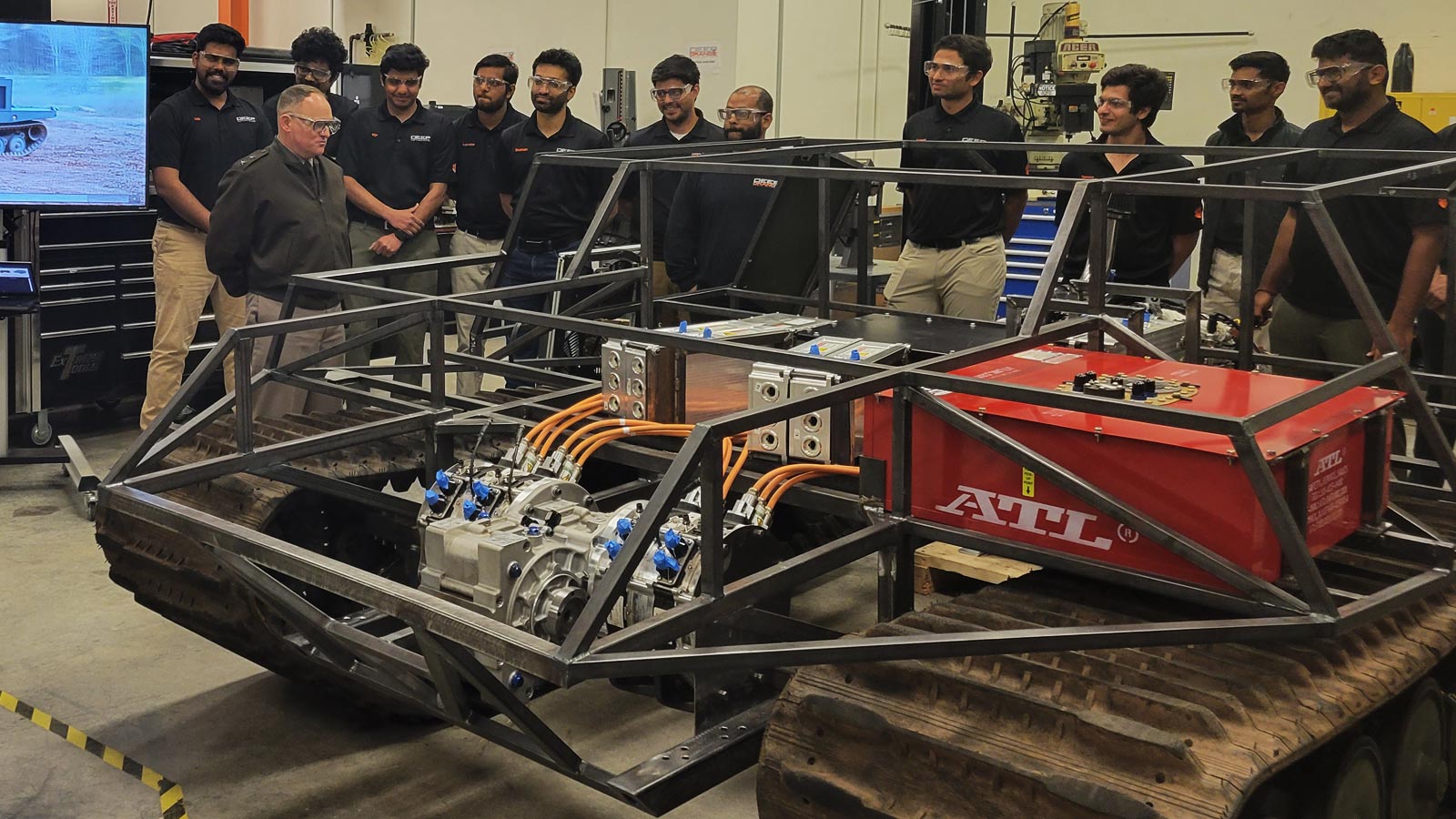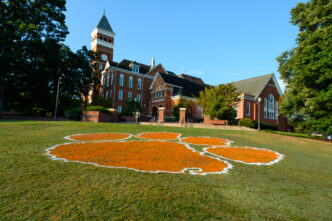Major General Edmond ‘Miles’ Brown, who is commanding general of the U.S. Army Combat Capabilities Development Command (DEVCOM) and a native of Honea Path, South Carolina, visited the Clemson University International Center for Automotive Research (CU-ICAR) during the spring semester to learn about the University’s capabilities and the high-profile partnership between Clemson and DEVCOM Ground Vehicle Systems Center (GVSC).
Announced in 2020 and expanded in 2022, Clemson’s partnership with DEVCOM GVSC created the Virtual Prototyping of autonomy-enabled Grounds Systems (VIPR-GS) Center to develop innovative digital engineering tools for rapid exploration and design of the next-generation of on- and off-road vehicles. These tools aim to support GVSC’s ambitious goals for the rapid modernization of U.S. Army fleets.
Col. Sandy Edge—Clemson alumnus, senior business lecturer, and U.S. Air Force retiree—kicked off his visit with a summary of Clemson and its strong military history, including its founding as a military school for cadets seeking the highest academic excellence. To date, more than 10,000 Clemson alumni have served in the armed forces, and Clemson is home to 10 student military organizations.
Brown then toured several of the campus’s world-class facilities, including CU-ICAR’s advanced powertrain lab, autonomous vehicle test cell, and the AVX Mobility Systems Innovation Lab, home to Clemson’s flagship Deep Orange program. The afternoon featured faculty and student researchers’ ongoing work across digital engineering, advanced propulsion, human factors, smart energy, and autonomous driving.
As leader of the Army’s organic research and development capability and largest cohort of scientists and engineers, Brown is keenly aware of the expertise required to innovate.
“Deep Orange, and the Army’s partnership with Clemson, exemplify the power of shared innovation,” Brown said. “This program gives students a crash-course in the ways engineering disciplines apply to Army modernization, while letting them work alongside DEVCOM experts.
“They’re taking Army requirements and building advanced vehicle prototypes within two years – it’s truly impressive. Whether they end up working in the private sector or in our labs as an Army civilian scientist, these students are the next generation of innovators and the experts our Army and our Nation need now and into the future.”
Major General Edmond ‘Miles’ Brown
The visit was led by: School of Mechanical and Automotive Engineering Founding Director and VIPR-GS Director Zoran Filipi; CU-ICAR Executive Director David Clayton; and U.S. Army Chief Scientist at GVSC David Gorsich. They were joined by: College of Engineering, Computing and Applied Sciences Associate Dean for Research Daniel L. Noneaker; BMW Endowed Chair Chris Paredis; Associate Professor Greg Mocko; Professor Johnell Brooks; Associate Professor Ben Lawler; and Michelin Endowed Chair Venkat Krovi, among others.
This visit comes after a string of high-profile announcements this year alone at CU-ICAR, including the:
· Launch of the nation’s first Bachelor of Science program in automotive engineering
· Creation of the new School of Mechanical and Automotive Engineering
· R&D milestone for the University’s $58-million VIPR-GS Center
· Unveiling of Clemson-built sustainable vehicle prototype at the world’s largest tech conference
More about Clemson’s military history:
In 1916, ROTC was instituted at Clemson under the National Defense Act, and in 1917 the entire senior class enlisted in World War I. To date, more than 10,000 Clemson alumni have served in the armed forces, and more than 490 have given their lives to secure the freedom of others. Today, Clemson is home to ten student military organizations.













